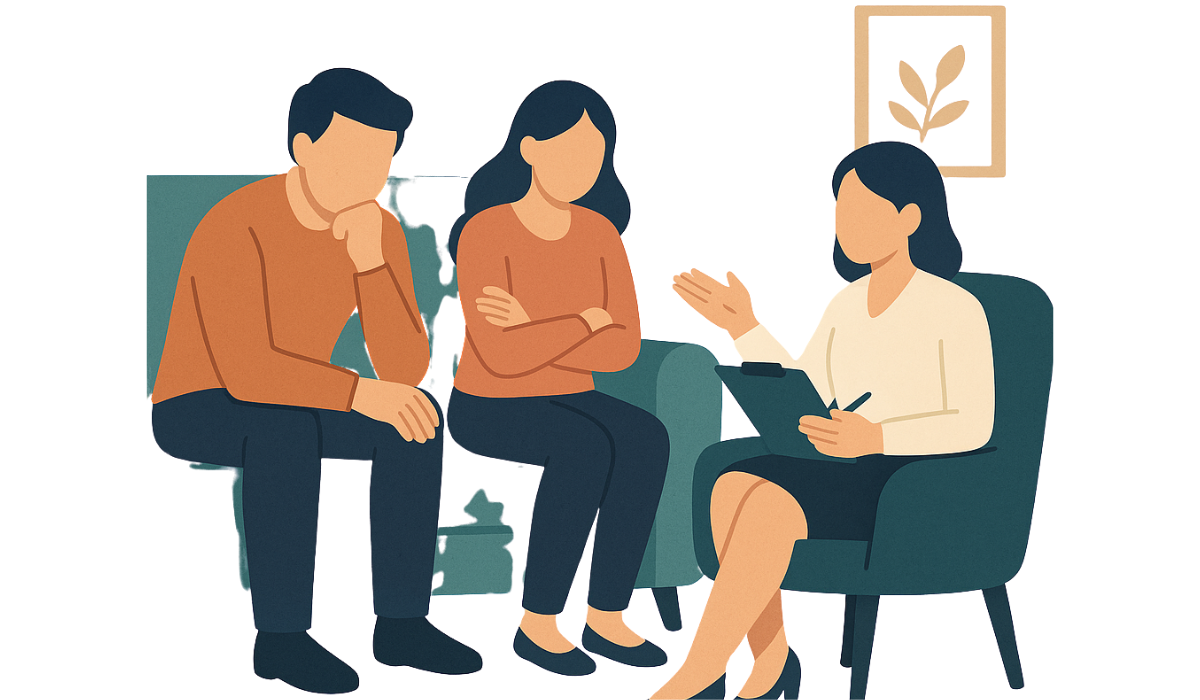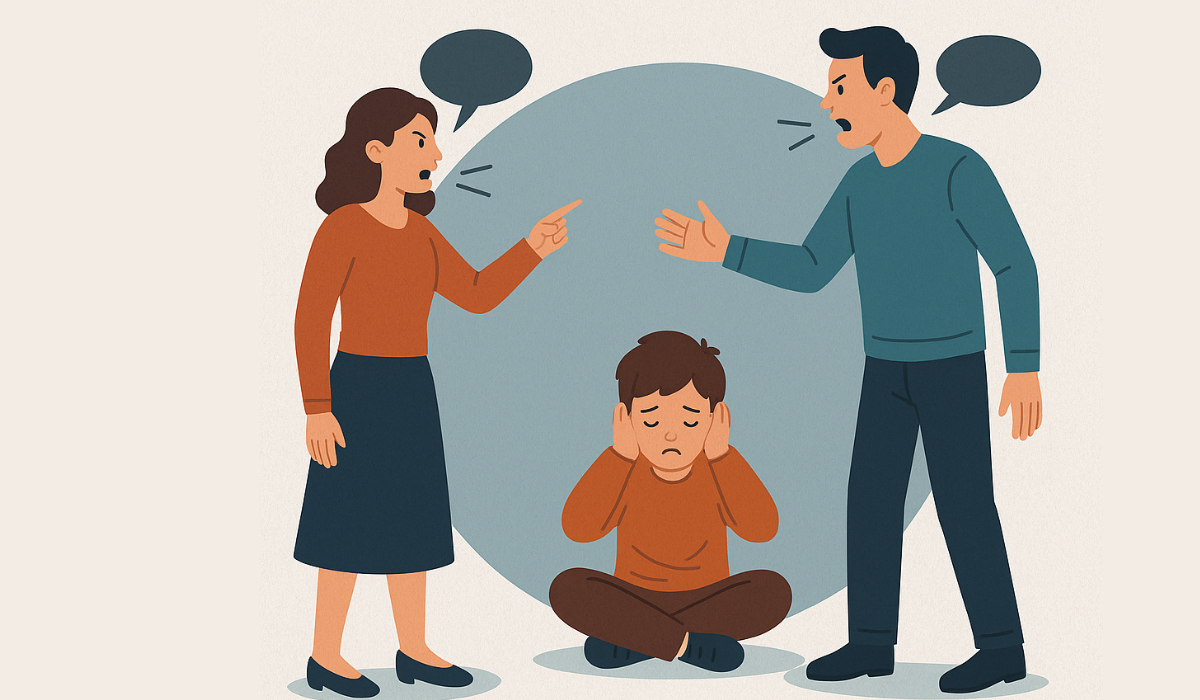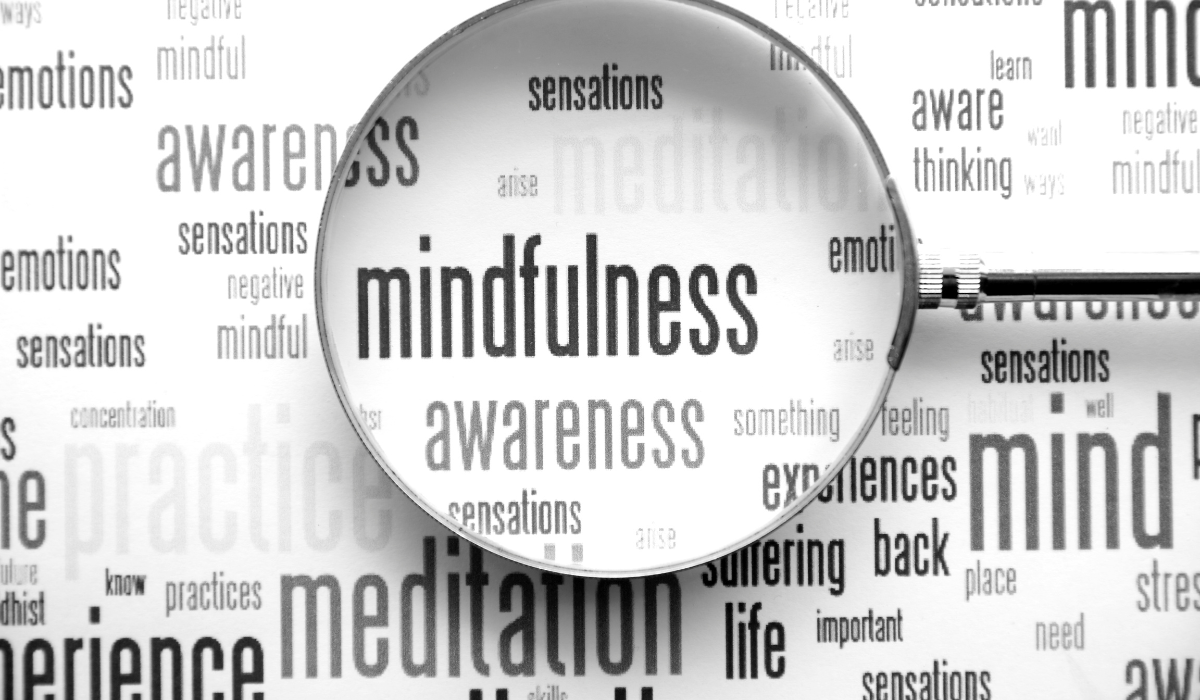Divorce. It’s a word that carries so much weight. Whether it was your decision, someone else’s, or a mutual one—it’s never easy. The end of a marriage brings a tidal wave of emotions. Sadness, anger, confusion, relief, guilt, grief. And sometimes, all of those feelings show up in the same day.
But here’s the good news: healing is possible. And you don’t have to go through it alone.
That’s where therapy for divorce recovery comes in. It’s a gentle, supportive path to help you process what happened, rediscover who you are, and begin building the life you deserve.
Why Divorce Feels So Hard
Even in the most amicable separations, divorce marks a major life change. It can shake your sense of identity, disrupt routines, and alter relationships with friends, family, and even your children. Many people feel like they’re grieving a death.
“I didn’t just lose a spouse—I lost my sense of future,” said a client during one of her early sessions. That feeling is real. And it’s valid.
That’s why therapy for divorce recovery focuses not just on what happened, but on what comes next.
What Is Divorce Recovery Therapy?
In simple terms, it’s a therapeutic process designed to support you emotionally and mentally after a divorce. It’s not about assigning blame or rehashing every argument. Instead, it’s about:
- Understanding your emotions
- Learning from the relationship
- Rebuilding self-esteem
- Establishing new goals
- Regaining control of your future
Therapists use a variety of tools like talk therapy, cognitive behavioral therapy (CBT), mindfulness, and sometimes even guided journaling to help you process and heal.
And the best part? It’s tailored to you.
Rebuilding Your Sense of Self
One of the biggest struggles after divorce is figuring out who you are without the relationship.
Maybe you were married for decades. Maybe you sacrificed parts of yourself to keep things together. Maybe you’re asking, “Now what?”
This is where therapy for divorce recovery can be life-changing. Your therapist helps you explore your identity outside of the marriage. They’ll encourage you to reflect on:
- What brings you joy?
- What do you want from future relationships?
- What kind of life do you want to build?
You’ll begin to shift your focus from what you’ve lost to what you can now create.
“For the first time in years, I started dreaming again,” shared a client after three months of therapy. “I felt like me again.”
Working Through the Grief
Grief after divorce is not linear. Some days you might feel strong. Other days, you might feel broken. That’s normal.
Therapy gives you the space to express those feelings without judgment. You don’t have to “be over it” in a week, a month, or even a year.
Your therapist helps you sit with the pain in healthy ways and gives you tools to process each stage of grief: denial, anger, bargaining, depression, and acceptance.
Sometimes, just having someone listen is healing in itself.
Setting Healthy Boundaries
Boundaries can get blurry during and after divorce—especially if you share children, work together, or live in the same community.
In therapy for divorce recovery, you’ll learn how to:
- Say no without guilt
- Protect your mental space
- Limit unhealthy communication
- Create clear co-parenting roles
Boundaries aren’t about being mean. They’re about being kind to yourself.
Healing from Betrayal or Abuse
If your divorce involved betrayal, emotional neglect, or abuse, the healing process can be even more complex.
Therapists trained in trauma recovery can help you work through feelings of shame, fear, and self-blame. They’ll guide you in re-establishing trust in yourself—and eventually, in others.
This process may take time. But with support, it’s absolutely possible.
“I used to think I was broken,” one survivor said. “Therapy reminded me I was strong. I just needed help remembering.”
Moving Forward (At Your Own Pace)
Everyone heals at a different pace. And that’s okay.
Some people are ready to date again after a few months. Others need years to feel open to love. Therapy helps you figure out when—and if—you’re ready. There’s no rush.
What matters is that your next chapter is grounded in self-awareness and emotional strength.
Therapy Isn’t Just for Crisis
Many people think they need to be falling apart before they seek therapy. That’s not true.
Therapy for divorce recovery isn’t just about surviving the hard days. It’s about growing, learning, and thriving.
Even if you’re doing “okay,” talking to a therapist can bring clarity, direction, and unexpected breakthroughs.
Choosing the Right Therapist
Finding a therapist who understands your experience is key. Look for someone who:
- Specializes in divorce recovery or relationship transitions
- Makes you feel heard and supported
- Encourages, but never pressures
- Offers a safe, non-judgmental space
You deserve support that fits your unique story.
Don’t hesitate to ask questions during your initial consultation. You’re not just picking a therapist—you’re choosing a healing partner.
Virtual Therapy Options
Worried about making time for in-person sessions? Many therapists now offer virtual sessions that fit into your schedule.
Online therapy has been a game-changer for busy professionals, single parents, and those in remote areas. The support is still real—even through a screen.
How Long Does Divorce Recovery Therapy Take?
That depends on you.
Some people feel significant relief after a few months. Others continue therapy for a year or more as they work through deeper layers of healing.
There’s no fixed timeline. Therapy is not a race—it’s a journey.

What You’ll Gain
By the end of your therapy journey, you may find that:
- Your confidence has returned
- You’re no longer triggered by your ex
- You’ve created new routines and goals
- You’re open to new beginnings
Most importantly, you’ll realize that your past doesn’t define you. It’s just one chapter in your story.
Final Thoughts: You’re Not Alone
Divorce may feel like the end of the road—but it’s really the beginning of something new.
Therapy for divorce recovery is a powerful tool to help you rebuild, renew, and move forward with hope. It’s about rediscovering your strength, finding your voice, and creating a future that excites you.
“I thought I’d never be happy again,” one client said. “But therapy helped me see—this is just my reset, not my end.”
So, if you’re standing in the rubble of a broken marriage, know this:
Healing is possible. Joy is still ahead. And you are worth the work it takes to get there.
About Us
Step Into Your Power with Crystal Perdue
Coaching for Growth, Healing & Transformation
I’m Crystal, and I’m here to guide you through a journey of self-discovery and personal evolution. My approach blends therapeutic insight with practical coaching to help you move past emotional roadblocks and toward your most authentic self.
✨ Struggling with self-doubt? Seeking clarity? Ready to grow? Let’s take the first step together.
👉 Schedule your session today and start building a more empowered you.
FAQs
What is therapy for divorce recovery, and how does it help?
Therapy for divorce recovery is a supportive and guided process that helps individuals navigate the emotional and psychological challenges after a divorce. It helps you process grief, rebuild self-esteem, and move forward with clarity. Whether you’re feeling lost, angry, sad, or just unsure, therapy provides a safe space to explore those feelings and begin healing.
How soon after a divorce should I start therapy?
There’s no “perfect” time to start therapy. Some people begin during the separation process, while others wait until after the divorce is finalized. The right time is whenever you feel the need for support. Starting early can help ease the emotional transition, but it’s never too late to seek help.
How long does therapy for divorce recovery usually last?
The duration varies depending on your personal needs and goals. Some people benefit from a few months of sessions, while others may continue therapy for a year or more. Remember—healing isn’t linear, and therapy moves at your pace. The focus is on real, lasting growth.
Can therapy help if I’m the one who initiated the divorce?
Absolutely. Even if you made the decision, you’re still navigating a major life change. Feelings like guilt, relief, sadness, and doubt are completely normal. Therapy for divorce recovery helps you work through those emotions and empowers you to understand your choices with compassion and clarity.
What if my divorce involved betrayal or emotional abuse?
In these cases, therapy becomes even more essential. Therapists trained in trauma and relationship dynamics can help you heal from betrayal, rebuild your trust, and recognize patterns that may have caused harm. You’ll also work on restoring your self-worth and setting healthy boundaries for the future.
Is therapy only about talking, or are there other techniques involved?
While talk therapy is common, many therapists use additional tools like mindfulness practices, journaling, guided meditations, cognitive-behavioral therapy (CBT), and goal-setting exercises. The approach depends on what works best for you. Divorce recovery therapy is personalized and flexible.
How does therapy help with co-parenting challenges after divorce?
Therapy can help you manage post-divorce communication with your ex, especially when it comes to co-parenting. You’ll learn how to set boundaries, reduce conflict, and focus on what’s best for your children—all while protecting your own mental health.
Can therapy for divorce recovery be done online?
Yes! Many therapists now offer virtual sessions that are just as effective as in-person visits. Online therapy is convenient and accessible, especially for those with busy schedules or limited local resources. Healing can happen anywhere, as long as you feel safe and supported.
What should I look for in a divorce recovery therapist?
Look for a therapist who specializes in relationship transitions or grief and loss. You’ll want someone who listens with empathy, offers practical tools, and creates a non-judgmental space. Don’t be afraid to try a few consultations before choosing the right fit—it’s important that you feel comfortable and understood.
Will therapy help me feel confident about dating again?
Yes, it can. Therapy for divorce recovery helps you rediscover who you are, heal past wounds, and gain clarity on what you want in future relationships. You’ll learn to date from a place of confidence and self-awareness, rather than fear or desperation.






